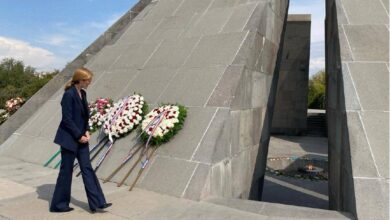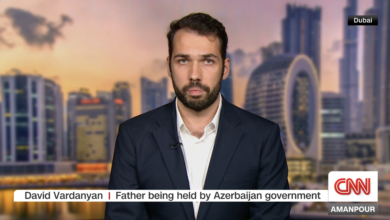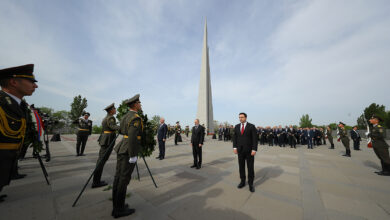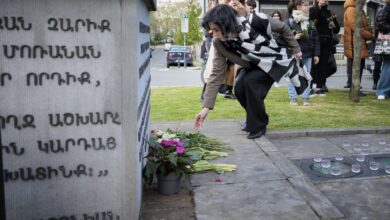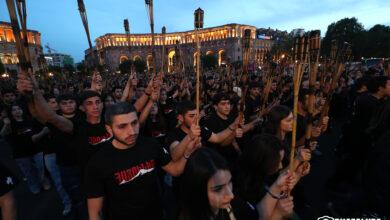Armenia had 15 new cases at ECHR in 2017
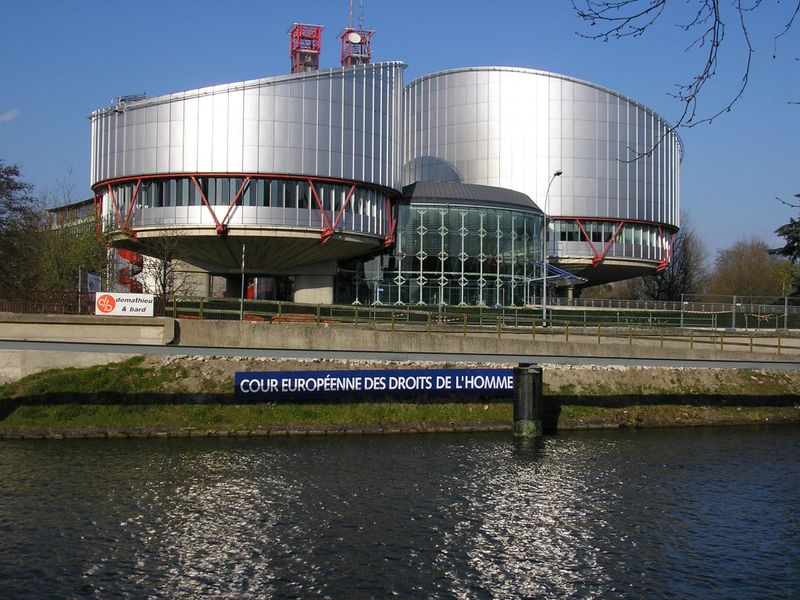
The annual report 2017 on the execution of judgments of the European Court of Human Rights has been adopted.
The report covers the latest overall trends in implementation as well as developments on specific issues.
The report says the countries with the highest total number of new cases in 2017 were Russia (370), Turkey (138), Romania (110), Ukraine (109) and Greece (103). For Armenia, the number of new cases was 15 (an increase compared to 10 in 2016).
The countries with the highest number of new leading cases in 2017 were Russia (19), Turkey (14), Ukraine (13), Romania (11) and Lithuania (10). For Armenia, the number of leading cases (those revealing new structural and/or systemic problems) was 2.
The countries with the highest number of new repetitive cases in 2017 were Russia (351), Turkey (124), Romania (99), Greece and Ukraine (both 96).
Armenia had 13 repetitive cases (related to issues that have already been raised before), which means the majority of the new cases were repetitive.
A total of 7,584 cases were pending at the end of 2017, down from 9,941 a year earlier (a drop of 24%); the total number of pending cases was the lowest since the end of 2008.
Armenia had 30 pending cases, a significant increase as compared to 19 in 2016.
The countries that closed the highest total number of cases in 2017 were Italy (2,001), Hungary (296), Russia (254), Romania (144) and Poland (133. For Armenia, the total number of cases closed was 4, much fewer than in 2016 (16).
In 2017, the court awarded €14.6m in “just satisfaction” against Russia, €12.5m against Italy, €11.6m against Turkey, €5.9m against the Slovak Republic and €3.7m against Greece [pp 80-81]. The total figure is €60.4m compared to €82.3m euros in 2016. For Armenia, total amount of “just satisfaction” awarded in 2017 was €106,665, a slight increase as compared with €93,585 in 2016.
Main achievements for Armenia:
Actions of security forces: Measures taken to prevent arbitrary detention without reasonable suspicion that the person concerned has committed a crime. Furthermore, compensation for non-pecuniary damages is available in case where abuses have been committed by security forces – amendments and additions to the Civil Code in 2014.
Respect of the final character of judicial decisions: More circumscribed rules on appeals on points of law were introduced by amendments to the Code of Civil Procedure in 2014 in order to avoid several final judgments in the same case.
Fair trial: Improved reasoning of decisions by the Court of Cassation and Constitutional Court.19 In addition, oral hearings in administrative cases were introduced by the new 2013 Code of Administrative Procedure.
Freedom of assembly: The sanction of administrative detention for participation in peaceful assemblies was abolished in 2005 and a more precise legal framework for peaceful assemblies was adopted in 2011, which provides for additional safeguards. Additional guarantees for freedom of assembly in general and for “spontaneous” assemblies, which do not require prior notification, were introduced by amendments of the Constitution in 2015.
Main pending cases for Armenia:
- Ashot Harutyunyan (group), judgment final on 15/09/2010. Inadequate medical care in detention; practice of placing accused in a metal cage during
- Chiragov and Others (group), judgment final on 16/06/2015. Impossibility for displaced persons to gain access, in the context of the Nagorno-Karabakh conflict, to their homes and properties in Nagorno-Karabakh and the surrounding territories – lack of effective remedies)
- Virabyan (group) judgment final on 02/01/2013. Ill-treatment and torture in police custody and ineffective investigations
- Muradyan, judgment final on 24/02/2017. Absence of an effective investigation into the death of an Armenian military conscript based in Nagorno-Karabakh.


